Data-Pop Alliance (DPA) is glad to share the main outputs of a year-long collaboration with four UNDP Country Offices in sub-Saharan Africa in the form of four reports titled Impacts and Implications of COVID-19 in Equatorial Guinea, Liberia, South Sudan and Togo. These reports, developed as part of UNDP’s technical leadership of the UN system’s framework for the socio-economic response to COVID-19, provide assessments of the effects of the pandemic and suggest potential policy responses for these countries across the three main areas that structure each report: Macro-fiscal, Human Development, and Governance.
COVID-19 in Equatorial Guinea, Liberia, South Sudan and Togo
When COVID-19 hit, some believed sub-Saharan African countries may be largely spared because of its geography, climate and the relatively young population. We (as others) soon anticipated that the crisis may have dramatic social, economic and possible political consequences well above direct public health impacts. In other words, as we wrote in one of the reports, that “these countries and communities could be severely affected even if few individuals were infected” (at least according to official public health data). This is of course because of the impacts of the crisis on regional and global economic activity and trade (including in the natural resource and agricultural sectors; and tourism in some, while the impact on remittances was and remains unclear) as well as the effects of lockdown or mobility restriction measures on livelihoods, food security, domestic violence, education, access to health services and more.
These effects have also compounded pre-existing fragilities and vulnerabilities in countries where many households and institutions are already structurally under stress. Of particular concern were, and remain: the heightened risk of political instability; the growing impacts of climate change and environmental degradation; the occurrence of other threats/shocks to livelihoods such as the locust crises, natural disasters, fluctuating commodity prices, a volatile interconnected global economy, food insecurity and / or armed conflict (e.g. in South Sudan), and large socio-economic and gender disparities.
Building back better: Content and outcomes
The reports seek to provide analyses of the channels, nature and magnitude of these impacts in all four countries on the basis of available data and extensive consultations with local stakeholders. In particular, in most countries, we put together local advisory and technical groups referred to as CODEs (for Council for the Orientation of Development and Ethics), initially developed by DPA under the auspices of the Open Algorithms (OPAL) project. We also worked in direct collaboration with Senior members of national governments (e.g. Ministers of Finance), senior representatives of UN agencies (UNFPA, FAO, WHO, amongst others) and of civil society organisations, with support from national consultants. In some cases, the reports integrated “non-traditional” data (such as social media data) to complement official statistics and give a different perspective on local impacts. The reports underwent extensive rounds of comments and revisions to ensure their relevance and usefulness.
Overall they paint a gloomy and worrying picture of what has unfolded and may happen if national and international stakeholders fail to respond forcefully and appropriately, but also point to causes for moderate optimism. In particular, they advise that this crisis, as all crises, should also be seen and seized as an opportunity. A year ago, we wrote that “the COVID-19 pandemic is posing, exposing and exacerbating challenges for countries and communities across the Global South that will have global long-term repercussions”, then arguing that “[t]his moment is also an opportunity to rewire our systems and synapsis to build a better future”, as we further unpacked in a report with the Vodafone Institute. (Since, “building back better” and “resetting” the world became the mantra of most international organizations, including those that lauded the state of the pre-COVID world, thereby showing their unparalleled ability to pivot and adapt to changing circumstances.)
The 3 sections of the reports: Macro-Fiscal, Human Development and Governance – are structured and organised to reflect the priorities of UNDP’s own response and recovery framework.
– In terms of macro-fiscal impacts and implications, the reports focus on the effects and levers on growth, trade, fiscal space, social protection and safety nets.
– Priority areas for the human development section include poverty, livelihood impacts, employment effects, food security, public health, education, basic services, impacts on vulnerable groups and gender-based violence.
– The governance section covers issues of social cohesion, community resilience, peacebuilding and statebuilding, and presents options and scenarios for a coordinated response from national and international stakeholders.
The reports highlight the urgency to undertake economic and fiscal diversifications to allow investments in critical physical and human capitals that can boost innovation, the criticality of updating statistical information and data systems, the importance of accountability and agility of governments and donors, and the need to strengthen local public health and social protection systems, among others. To avoid the pitfalls of top-down technocratic measures, these efforts must also give greater visibility to, and ensure more active participation of citizens and communities, especially traditionally disadvantaged populations including women and girls, children, the elderly, people with disabilities, refugees and internally displaced populations (IDPs) and people living in poverty.
Next steps
Next, additional outputs of our collaboration with these four UNDP Country Offices will be released in the next few weeks, including a regional synthesis paper and technical reports on the use of non-traditional data. DPA is also currently working with UNDP to conduct an assessment of the socio-economic effects of COVID-19 and the role of disaster risk governance in 7 countries of the Western Sahel and the Lake Chad Basin region (Burkina Faso, Chad, Mali, Mauritania, Niger, Nigeria and Senegal), which will be published in June, as well as a policy document on livelihood resilience in fragile, post-crisis and conflict-affected countries. Understanding and facing the impacts and implications of COVID-19 on livelihoods, inequalities, human development, governance, social cohesion and peace will remain a core priority area of our work in 2021-22.
In the meantime, we hope these reports will be useful and look forward to your comments and questions, which can be sent to research@datapopalliance.org.

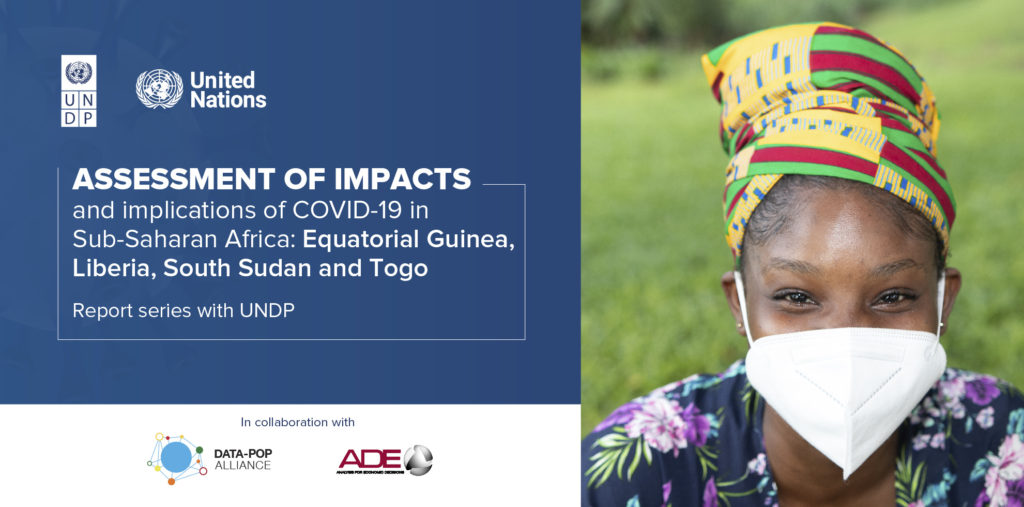
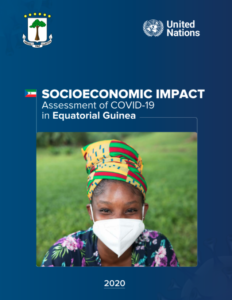
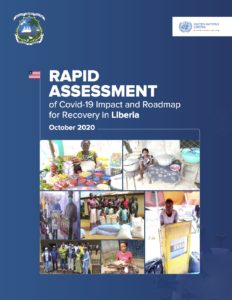
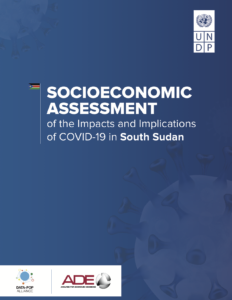
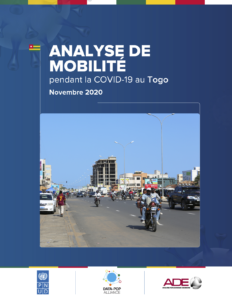
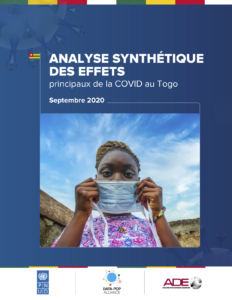

![M002 - Feature Blog Post [WEB]](https://datapopalliance.org/wp-content/uploads/2025/10/M002-Feature-Blog-Post-WEB.png)





